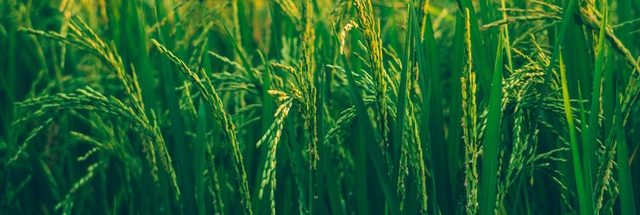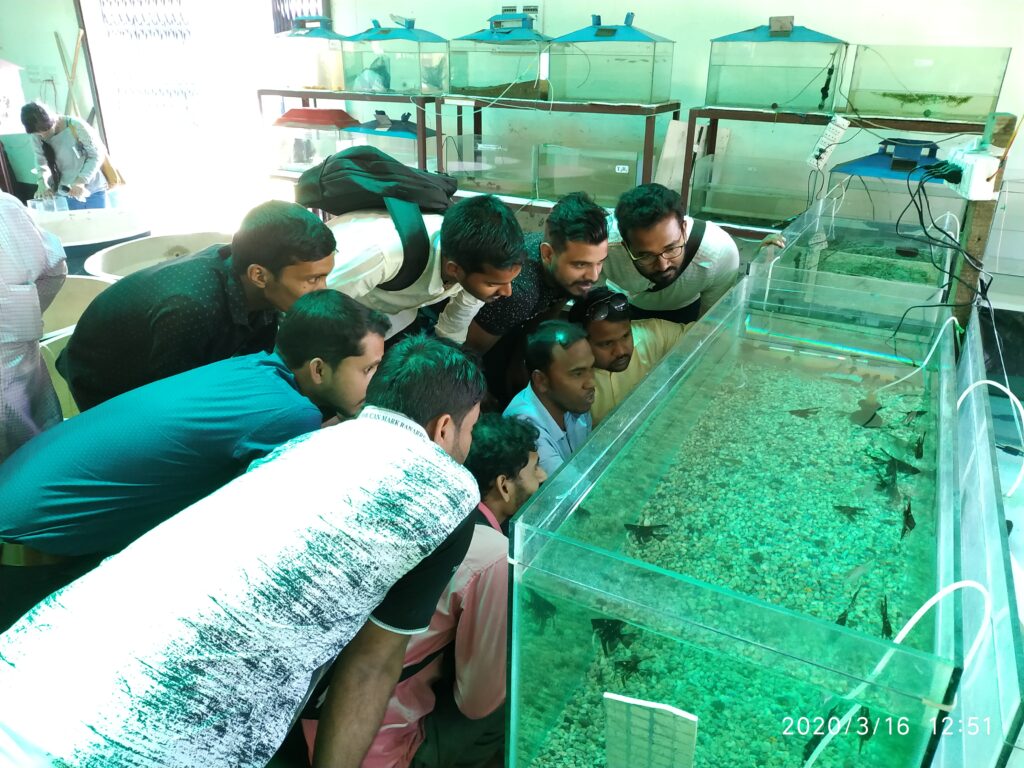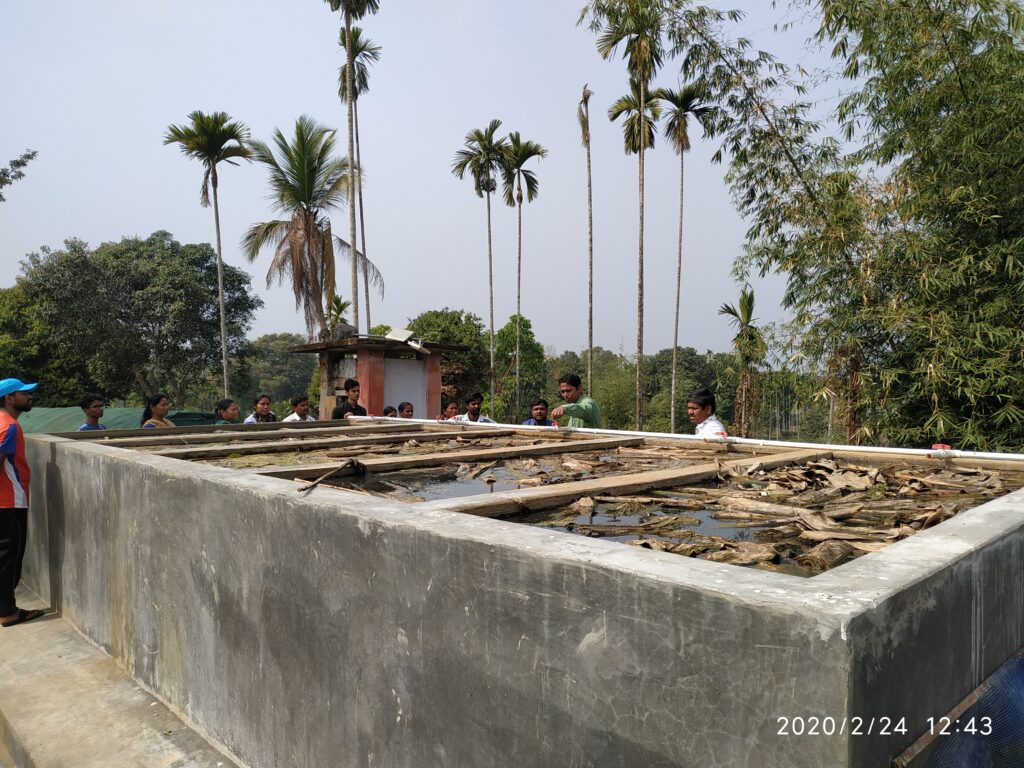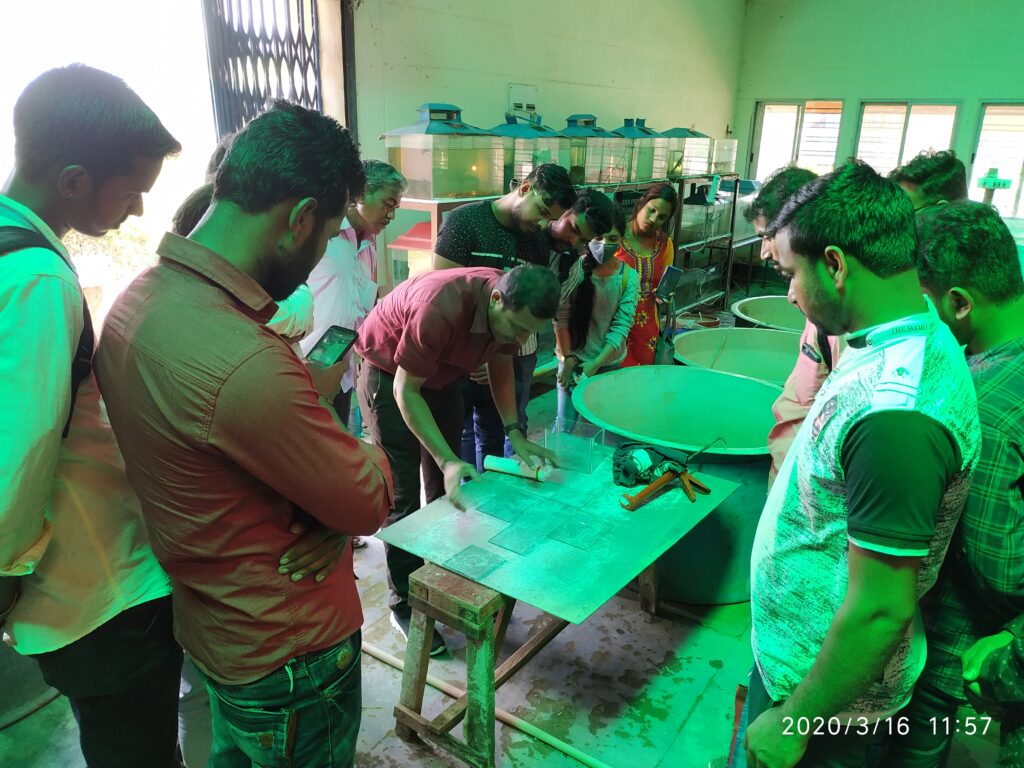



Recent News
-
New Events
June 5, 2020
-
Major food staples
June 4, 2020
-
Major food staples
June 4, 2020
-
India is the second largest producer of wheat and rice
June 4, 2020
-
Order reg Farmer(Empowerment and Protection) Agreement on Price Assurance and Farm Services Ordinance, 2020
June 4, 2020
Welcome to Krishi Vigyan Kendra North Tripura
A Krishi Vigyan Kendra (KVK) is an agricultural extension center in India. The name means “farm science center”. Usually associated with a local agricultural university, these centers serve as the ultimate link between the Indian Council of Agricultural Research and farmers, and aim to apply agricultural research in a practical, localized setting. All KVKs fall under the jurisdiction of one of the 11 Agricultural Technology Application Research Institutes (ATARIs) throughout India. The first KVK was stablished in 1974 in Pondicherry. Since then, KVKs have been established in all states, and the number continues to grow. The Indian agricultural landscape faces many challenges, including a high percentage of smallholder farmers, lack of supply chain infrastructure, and extreme weather conditions. For a full description of these challenges, see Agriculture in India. A key strategy in addressing these issues, in addition to policy support and a functioning market, is using technology to better understand and adapt to complex challenges. However, higher-level research about modern agricultural trends, such as Climate Change and GMO, takes place in universities. The practical implications of this research, or their relevance to a certain local context, are not readily apparent. For example, academic research on new crop practices or seed types often takes place in centralized testing locations, due to the ease of monitoring and evaluation. The same goes for ground-level innovations which are effective in one local context but may not be extensible to others. Especially in areas with such geographic complexity as India, agricultural extension departments such as KVKs serve to gather, test and disseminate knowledge between centralized institutions and a geographically-dispersed rural population.
On-Farm Testing: Each KVK operates a small farm to test new technologies, such as seed varieties or innovative farming methods, developed by ICAR institutes. This allows new technologies to be tested at the local level before being transferred to farmers.
Front-line Demonstration: Due to the KVK’s farm and its proximity to nearby villages, it organizes programs to show the efficacy of new technologies on farmer fields.
Capacity Building: In addition to demonstrating new technologies, the KVK also hosts capacity building exercises and workshops to discuss modern farming techniques with groups of farmers.
Multi-sector Support: Offer support to various private and public initiatives through its local network and expertise. It is very common for government research institutes to leverage the network of KVKs when performing surveys with a wide range of farmers.[10][11][12]
Advisory Services: Due to the growing use of ICT, KVKs have implemented technologies to provide farmers information, such as weather advisories or market pricing, through radio and mobile phones.[13]
In each of these activities, the KVK focuses on crops and methods specific to the local climate and industry. Some factors which may impact this decision are: soil type, crops grown, water availability, seasonal temperatures, and allied sectors such as dairy and aquaculture. In addition to addressing local factors, KVKs are also mandated to increase adoption of practices that align with remunerative agriculture, climate smart agriculture, and dietary diversification.[14] Some KVKs also host social activities to facilitate rapport between the institutions and the local community.[15]


